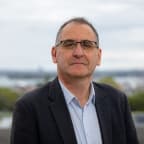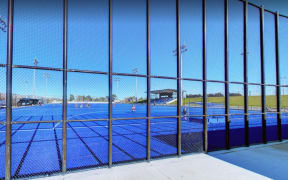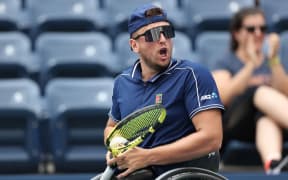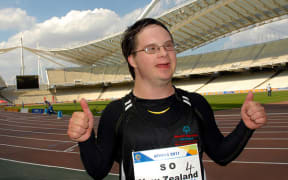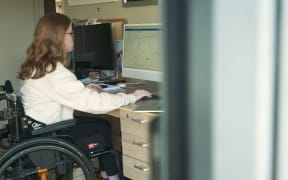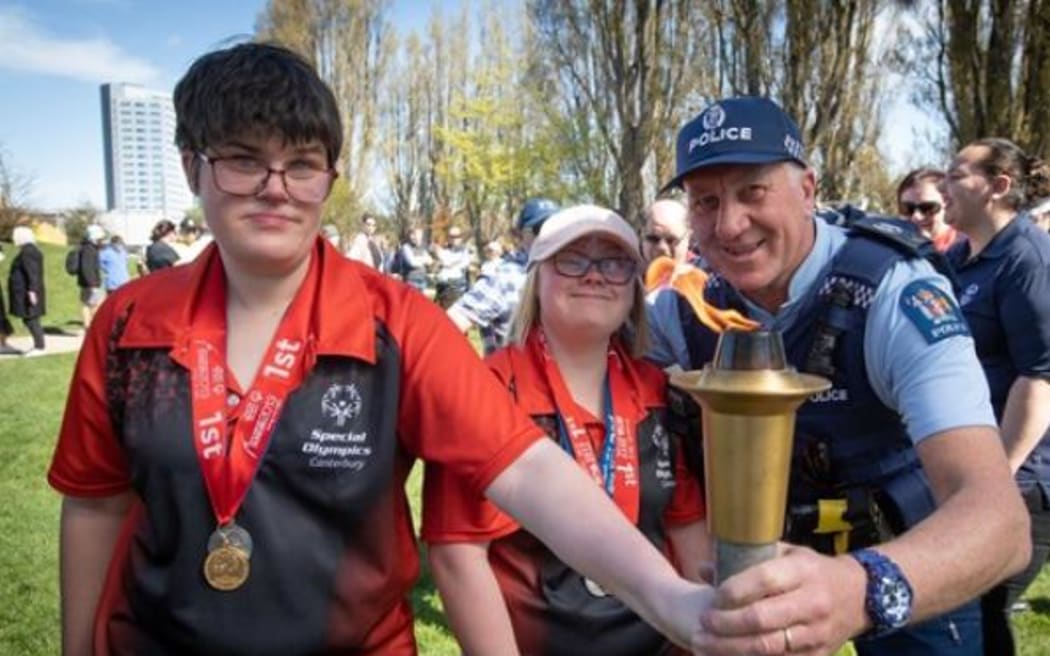
The Special Olympics torch run with police last month was a prelude to the main event starting today. Photo: police.govt.nz
About 1000 competitors have gathered in Hamilton for the opening of the Special Olympics National Summer Games today.
The four-yearly event, run over five days, is part of a worldwide movement.
The Special Olympics, founded in 1968, is the world's largest sporting organisation for people with intellectual disabilities.
Those taking part in the National Summer Games will compete in 10 sports, including swimming, basketball, power-lifting and athletics, at seven different venues.
Shanae Dean who is a tenpin bowler is competing in her third games.
"If we didn't have Special Olympics we wouldn't really be competing in sports because people, I don't know, they just don't know how to interact with people with disabilities.''
She said it was not just about winning. ''The main thing is to do your best and have fun."
Twenty-nine-year old David Sullivan is a member of the swim team and also an athlete leader, a role which involves engaging with other athletes and volunteers.
His favourite event is the 50-metre freestyle.
''I can see where I am going and gauge how far I can be from the wall for a turn. This year I am also doing the 100-metre medley, which I have never done in a competition quite like this, so it's all new territory for me.''
Sullivan has been involved with Special Olympics since 2008.
''The whole aspect of Special Olympics is really good to have fun and [for people] to really enjoy themselves while having a good time doing sports.''
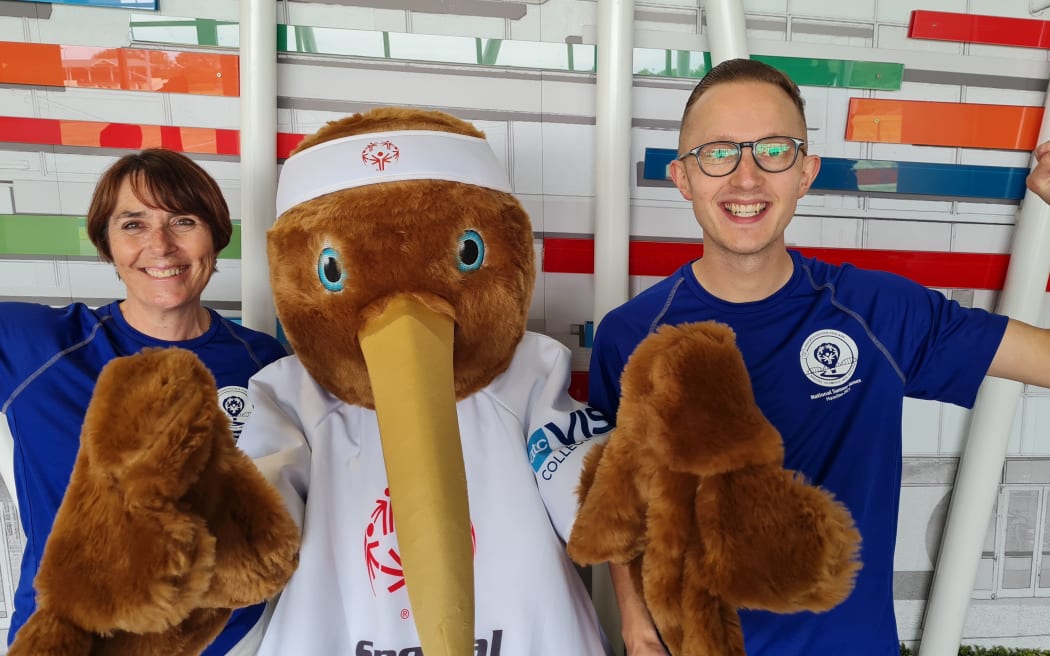
Event chief executive Carolyn Young and volunteer manager Kieran Booth with the mascot Kaka. Photo: RNZ / Andrew McRae
The success of the National Summer Games relies on volunteers helping to run the events.
Six hundred people have put their hands up to assist.
The volunteer manager, Kieran Booth, said without the helpers, the games would not happen.
''They will be very visible helping out with all of the different sports, but there are lots and lots of behind the scenes roles - helping out with the logistics, the transport arrangements, welcoming teams at the airport.
"We have also got lots of volunteers supporting our health athletes' programme, our athlete village. There are lots and lots of roles volunteers will be jumping in to support.''
Special Olympics chief executive Carolyn Young said the summer games were very inclusive, with competitors classified by their ability in a sport, rather than on the level of their disability.
''If we have a 50-metre freestyle race, then all of the people that swim at the same speed would be in the same race, so that nobody is miles ahead and no one is a long way behind, so everyone feels they are much more clustered together.''
The Special Olympics also allows everyone taking part to taste success.
''There are never more than eight people in an event and everybody gets a medal, so one through eight will get a medal and if someone is disqualified they get a participation medal to recognise the achievement they have had to get to that point.
"You often say in Special Olympics, you can't tell the difference between the person that came first and the person who came fifth, because the smile on the face can be just as broad because everyone is proud to be standing up and receiving recognition,'' Young said.
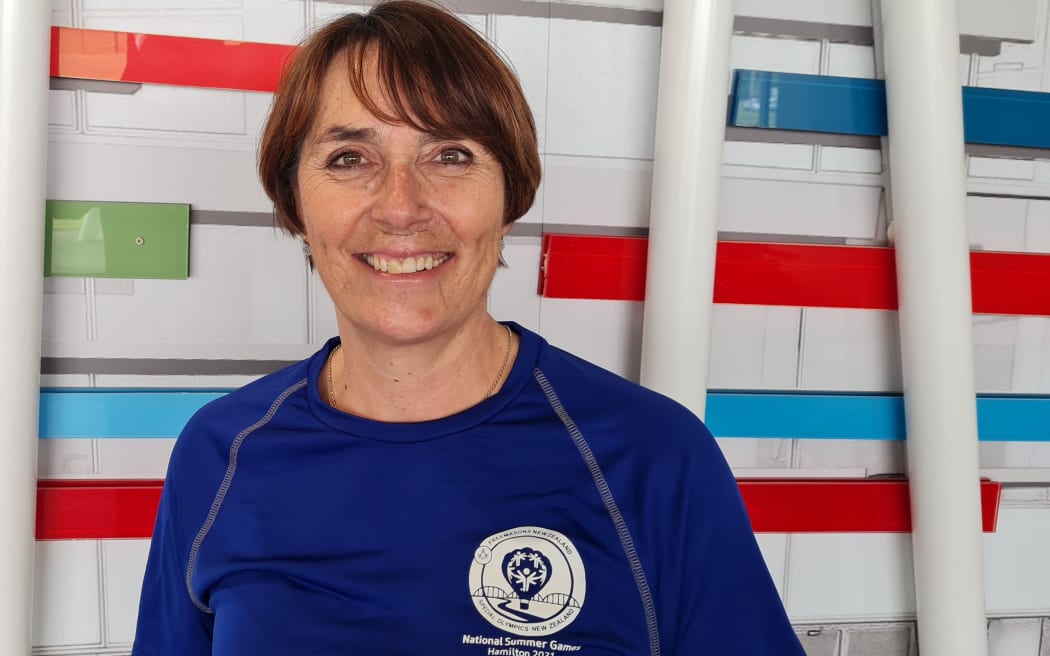
Carolyn Young says the event is all about the chance to compete and be recognised for effort. Photo: RNZ / Andrew McRae
The games also includes a Healthy Athletes programme which screens those taking part.
''To help identify areas of risk to our athletes in terms of their health because often clinicians aren't trained in how to work with someone with intellectual disabilities.''
She gave the example of when someone has an eye test.
''An optometrist may think the person can't read the screen rather than they can't see it. And that is quite a common thing.''
The clinicians, who are also volunteers, get special training and have the skills and tools to enable them to identify if someone can see or not see - a critical factor.
The Special Olympics will be officially opened at the Claudelands Event Centre at 4pm.
